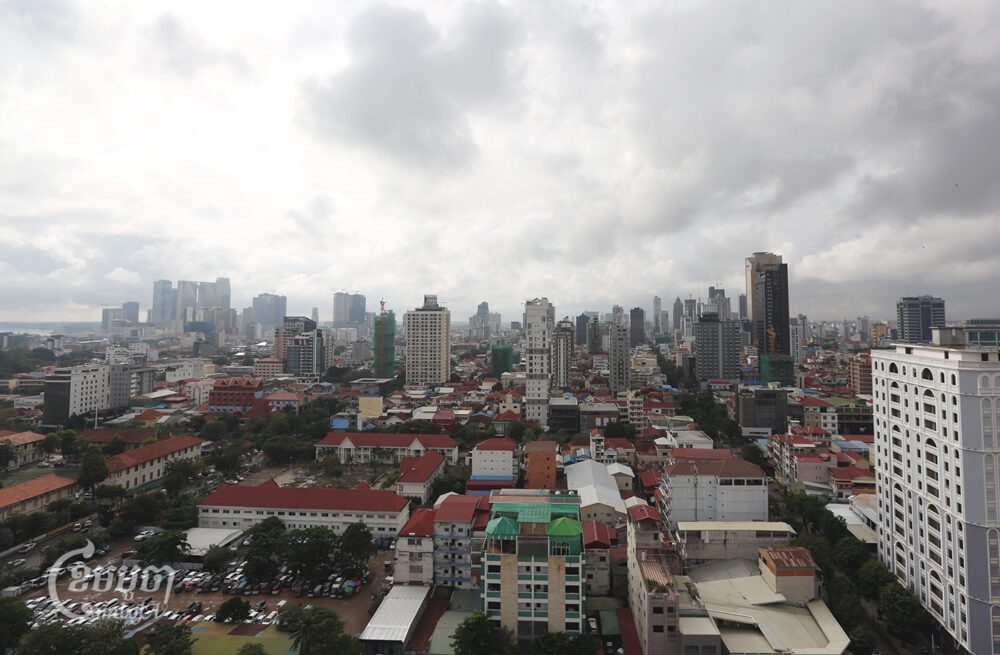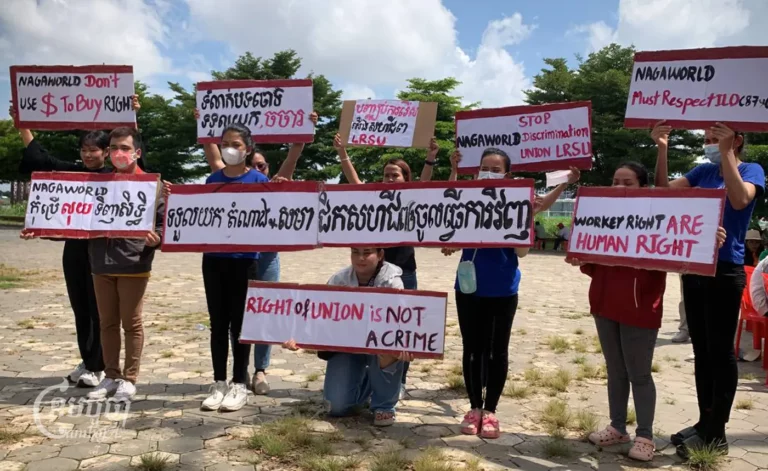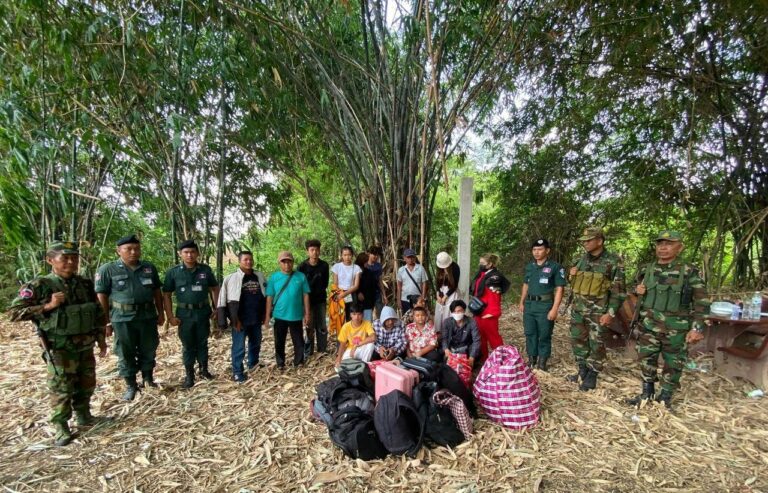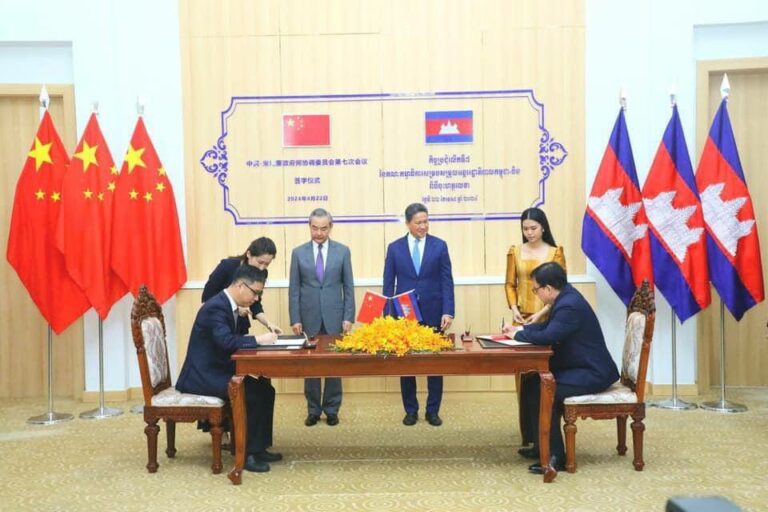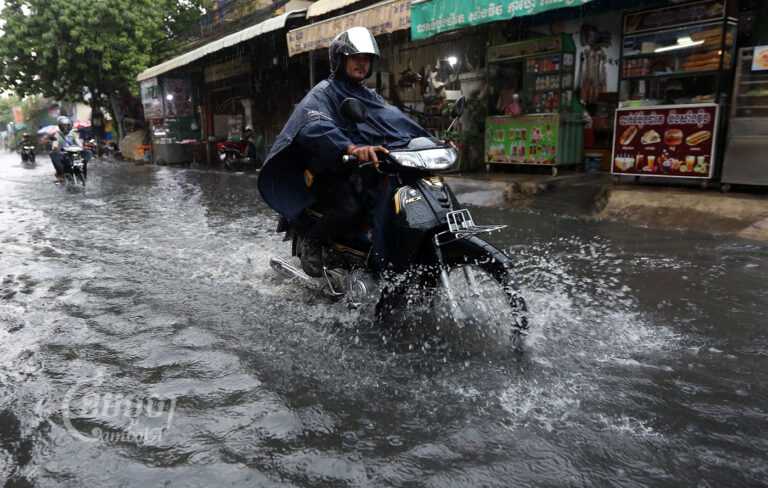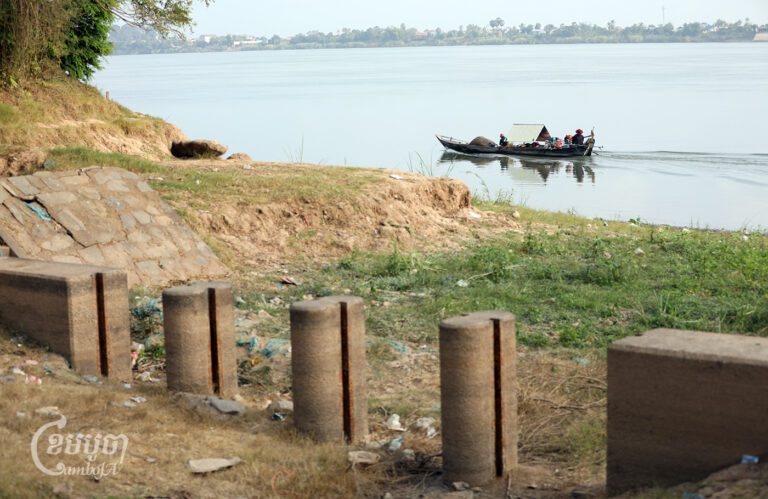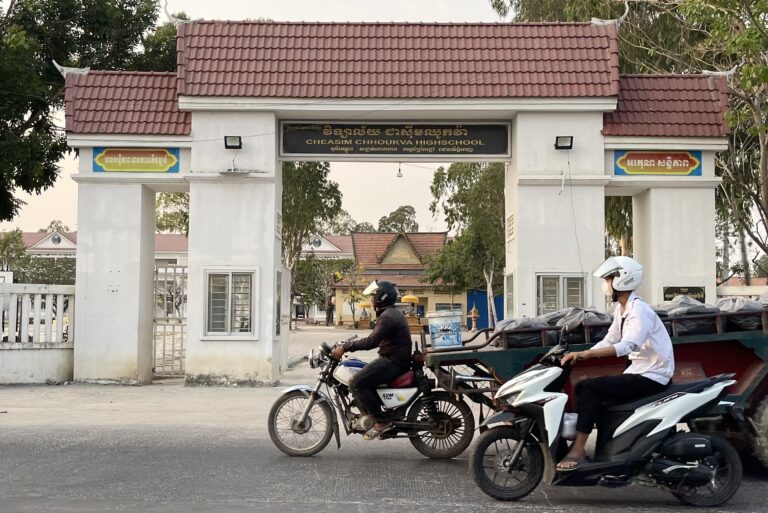As 2024 begins, Cambodia faces an economic slowdown that could jeopardize the country’s goal of becoming an upper-middle income country by 2030. Advances in the nation’s business environment, infrastructure and workforce are needed to stay on course, according to a World Bank economic analysis.
Hun Manet has stressed the country’s target of becoming a upper-middle income economy, based on a World Bank classification, since he first took office. He proclaimed that the government “steadfastly adheres to its commitment in realizing the aspiration of becoming an upper middle-income country by 2030 and ultimately achieving a high income country by 2050,” when speaking at a Cambodia Development Resource Institute conference in November.
But the World Bank projects the country’s 2023 economic growth at 5.4%, less than the average 7.2% annual growth seen over the 10 years before the pandemic. While Cambodia has reduced its poverty rate, half of the country still lives on $4.15 or less a day. World Bank economists Faya Hayati and Sebastian Eckardt asserted in their December publication that higher growth is possible if the country prioritizes reforms in key areas.
Improving the Business Environment
Businesses face high costs in Cambodia, with complex bureaucratic requirements to start operating in the country, including licenses and permits. Small and medium-sized enterprises (SMEs) struggle to access funding to get their businesses off the ground and more competition is needed to improve the business environment, the World Bank economists wrote.
Lim Viriya, co-founder of the SME food manufacturer LM. LIMA Angkor Food, said problems for business owners in Cambodia existed even before the pandemic, namely corruption.
“Corruption in the system is hard to solve, which makes people afraid to do business because [they see] other owners close their businesses and lose money due to injustice in the business sector,” she said.
Aside from the corrupt actions she has seen businesses take to get ahead, she said paying all of the necessary taxes and navigating the government’s requirements is difficult for small business owners.
Heng Sok Kong, spokesperson for the Ministry of Industry, Science, Technology and Innovation (MISTI), said the ministry has worked to promote policies that help SMEs become more competitive in order to improve economic growth.
“All SMEs always have major challenges related to access to markets, finance, technology and information,” he said. “But the government is already aware of all these issues and has taken care to make continuous adjustments.”
He cited the development of the KhmerSME website in 2021 as a measure benefiting small businesses, adding that the government helps connect small businesses with banks that can provide loans to increase financing. By the end of 2023, there were 44,628 manufacturing SMEs registered with MISTI, an increase of only 1.5% compared to the 2022 figures published in March.
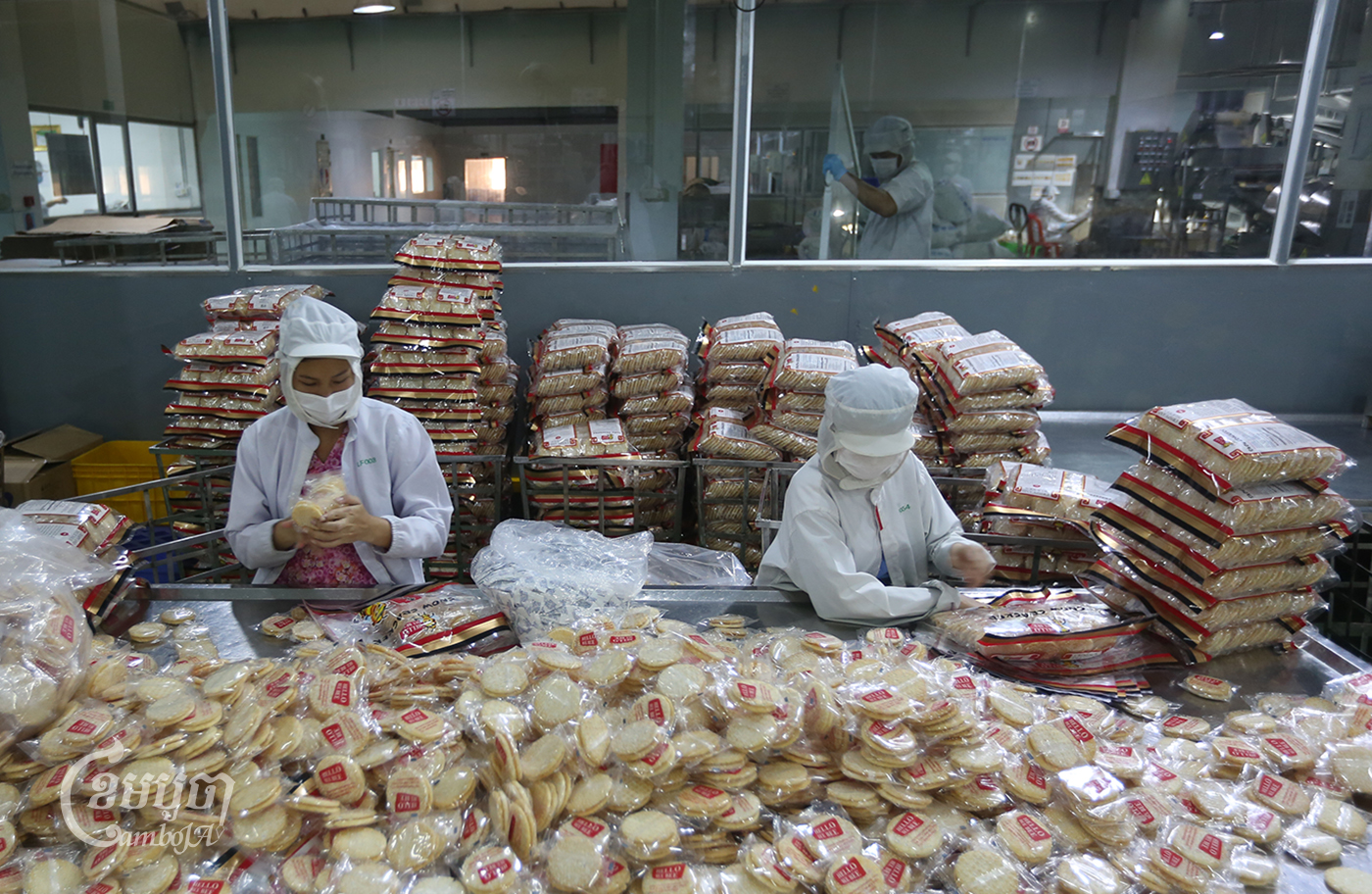
Updates to Infrastructure and Logistics
Improved infrastructure and logistics are crucial to growing Cambodia’s economy in order to compete on the global stage, as outlined by the World Bank publication. More financing of infrastructure is needed to improve the railway, road and waterway connections linking Thailand, Cambodian, Vietnam and Laos.
Sin Chanthy, president of the Cambodia Logistics Association, said that the transport sector is essential to exports and imports in the country and hopes the government’s logistics master plan will lead to improved deep-sea ports, airports and highways.
“In Cambodia, we still need a lot [of infrastructure improvements] to connect potential areas to ports, airports and logistics hubs,” he said. “The government has already prepared a logistics master plan, but that’s not enough at the moment and the lack of infrastructure causes increased prices compared to neighboring countries.”
The World Bank economists emphasize that urban planning must be strengthened in the country, including upgrading basic services such as water, sanitation, waste management, electricity and telecommunications.
Ses Aronsakda, a research fellow at the Cambodian think tank Future Forum, said urban development that improves living standards will in turn attract economic growth.
“Instead of being an after-thought, well built urbanism should be seen as a pre-requisite or pathway to attract people, talent and growth,” he said. “Rapid development must also be accompanied by increasing levels of livability.”
A spokesperson at the Ministry of Public Works did not respond to a request for comment.
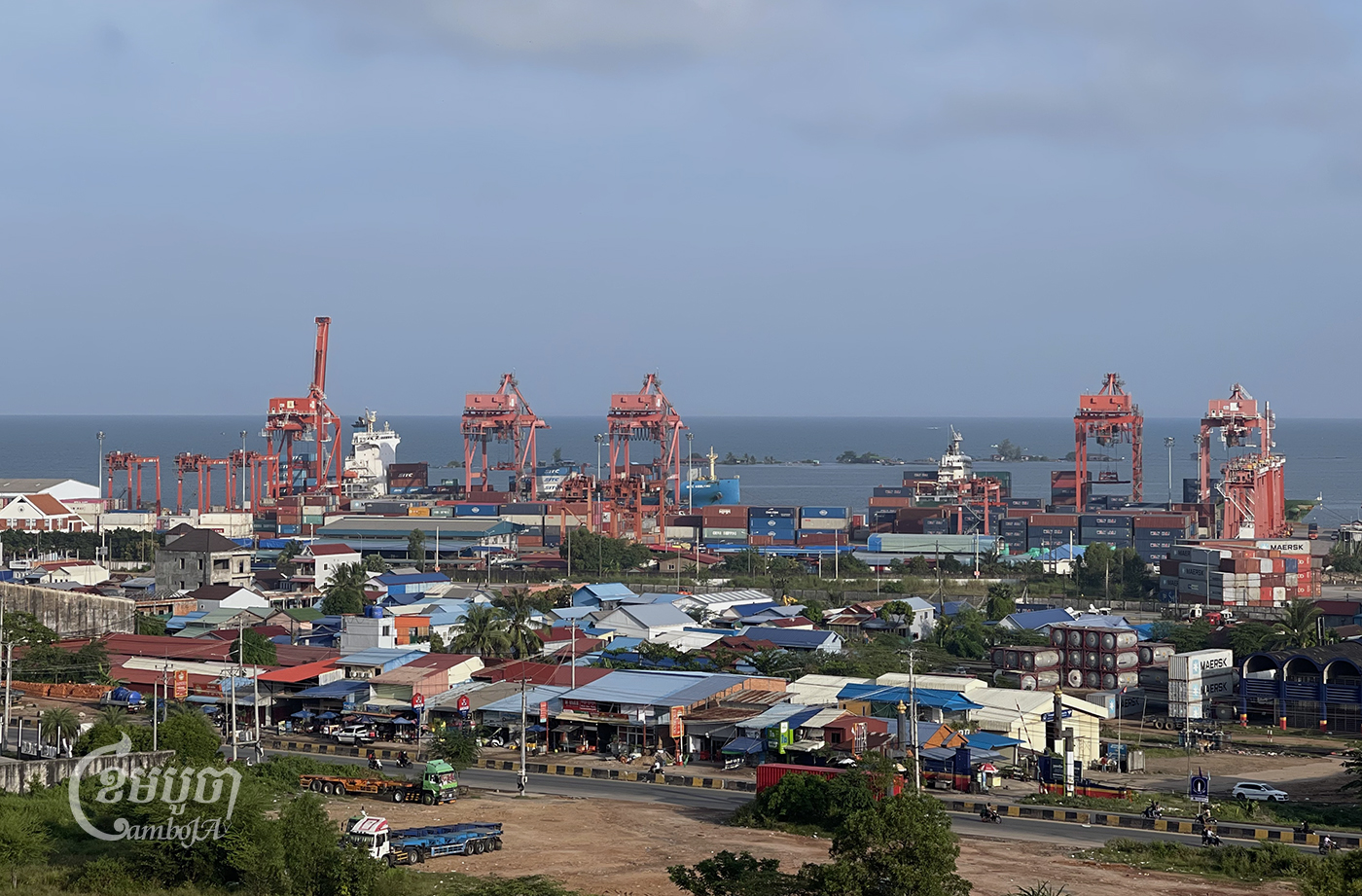
Workforce and Skill Development
Cambodia will need to address skills shortages in its workforce, with labor productivity growth declining significantly over the past five years, the economists stated. Children born now will likely only reach half of their potential lifetime labor productivity even with adequate education and health care.
Few Cambodian children are participating in early childhood education programs, affecting their development and reducing the ability for parents to return to work. Schools are experiencing declines in learning outcomes and high dropout rates, with children in poverty being the most affected. Incentives such as cash transfers may be needed to help children from poor families to attend and remain in school.
Kata Orn, spokesperson for the Labor Ministry, said that the government has started taking action to address the skills shortages, with plans to provide vocational training to 1.5 million young people.
“The government has paid greater attention to ensure that Cambodia becomes a medium and high-level industrial country, which requires skilled workers,” he said. “We are striving to train workers to respond to the job market.”
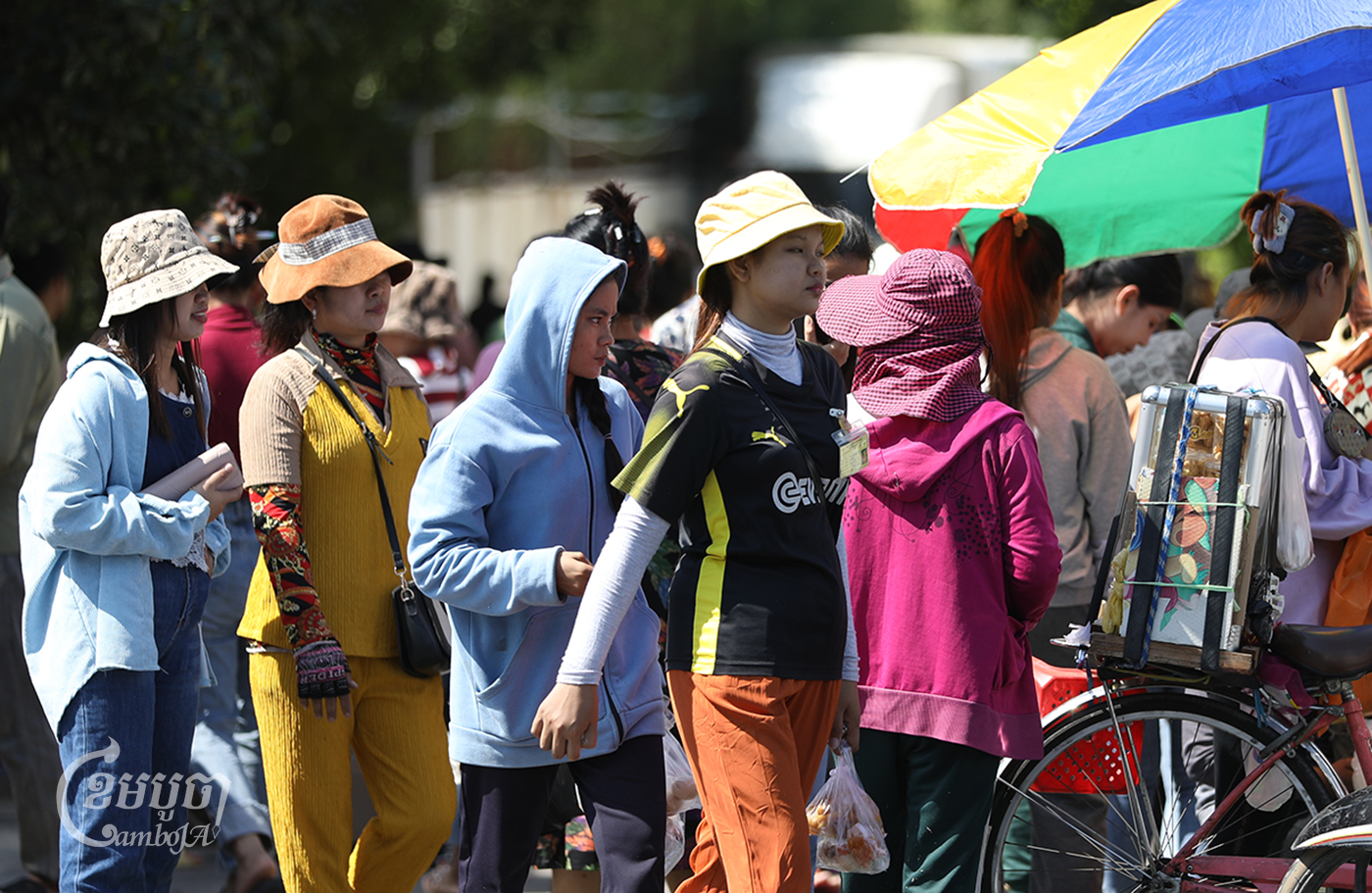
The World Bank economists contend that if Cambodia pursues “higher productivity, bold structural reforms, quality investments in infrastructure and human capital and climate smart development policies,” the country can maintain high economic growth as it works towards its 2030 goal.
In response to the analysis, government spokesperson Pen Bona told CamboJA News that the government has already implemented these key priorities, supporting laws to improve investments, logistics, infrastructure, human resources and adaptations to climate change.
“Even though [the World Bank publication] does not show these key implementations, the government has been implementing them,” he said.


